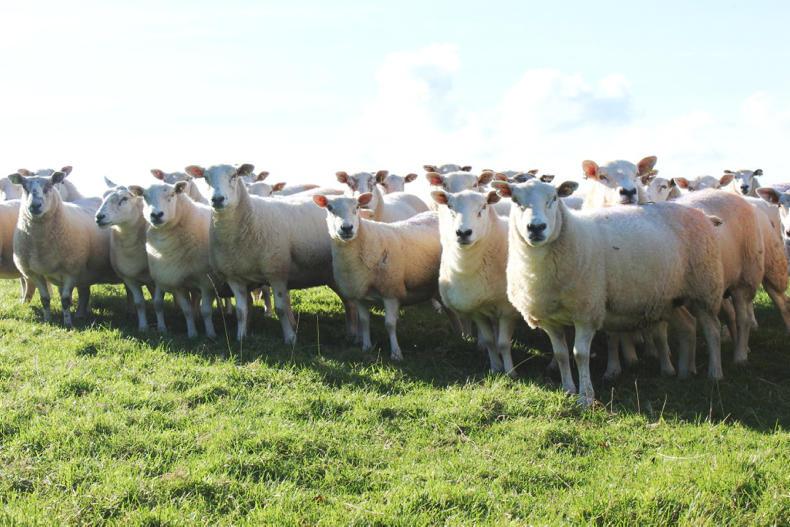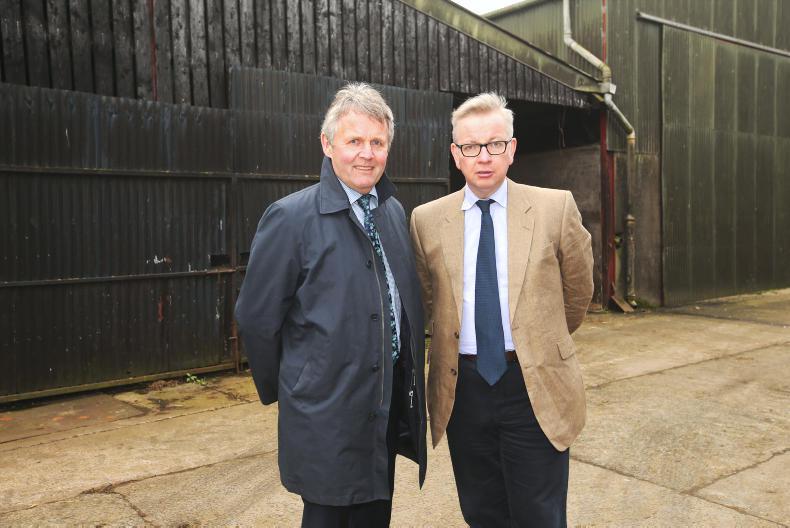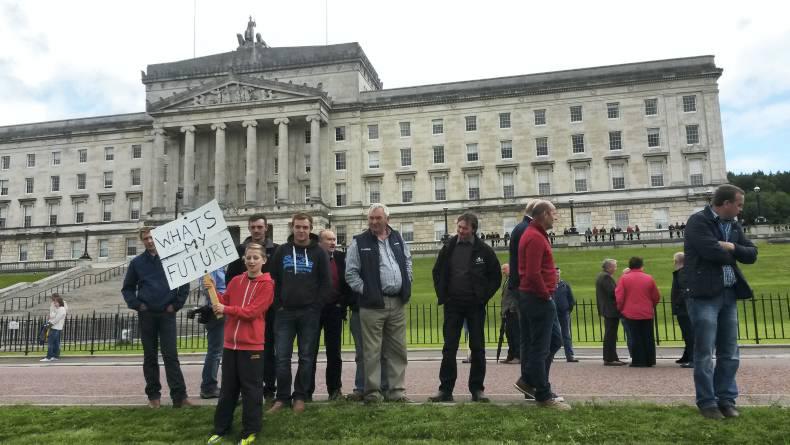A point often made by representatives from the agri-food industry is that farmers can only be expected to compete against imports that are produced to the same standards as here.
However, at Westminster last week, Defra Farm Minister George Eustice was dismissive of the concept, pointing out that it doesn’t even exist within the EU given different labour and land costs across member states. “The notion of a level playing field is elusive. Instead, we should target developing a good coherent policy that delivers for UK agriculture – we should get the focus in the right place,” he said.
He also maintained that a number of sectors, including milk are able to produce and compete at world prices. He acknowledged that of all the sectors, probably the beef industry is most exposed to cheap imports. But he pointed out that low-cost producers in other countries are often using hormones or producing to lower welfare standards, both of which are unacceptable to British consumers.
On lamb, he recognised that there is a fear that the UK will do a trade deal with New Zealand, sucking in cheap imports, but argued that the concerns might be misplaced.
“I do think we can compete with New Zealand. We have a higher-specification product that is better quality,” he said.
He also does not share the view that the UK government can go down a road whereby it decides to cast aside its farming and food industry in favour of cheap food imports. Countries such as the Gulf states, who buy in most of their food, have less variety on their shelves and their food prices tend to be much higher, he said.
Scottish still
want CAP review
A major debating point around Brexit will be how any UK government support coming for agriculture is actually allocated across devolved governments.
While nothing has yet been decided, Eustice suggested that future support arrangements might be based on the Barnett formula, the system used to allocate public expenditure to devolved administrations. It is broadly based on population, with NI getting around 3% and Scotland around 10% of money available. But, at present, NI gets over 9% and Scotland over 16% of current UK CAP funding, so both would lose out significantly if future support for agriculture was allocated under this system.
The other issue still exercising the minds of the Scots is their low rate of direct payments per hectare (€130/ha), the lowest rate in the EU, and behind the UK average of €229/ha, and particularly the average in NI of €330/ha. That relates to the fact that NI has a much more intensive livestock industry than Scotland. Also, given that Scottish farms tend to have more scale, they actually have the highest payments per UK farm business.
However, at the time of the last CAP reform, the then Defra Secretary of State Owen Paterson commited to reviewing the Scottish share of CAP money in the future.
“I appreciate that this is a sensitive issue in Scotland. The decision that we have to make is whether it is worth reviewing for what is left of the CAP or whether we should roll that over into a more comprehensive review of the type of support that we will have,” Eustice told MPs last week.
Read more
Agriculture isolated as UK prepares to trigger Brexit
NI industry must calculate costs of Brexit policy
Brexit not the only negotiation for the EU
Letter: UK record on animal disease needs us to have sealed border
ASA to examine impact of Brexit on farming
Full coverage: Brexit
A point often made by representatives from the agri-food industry is that farmers can only be expected to compete against imports that are produced to the same standards as here.
However, at Westminster last week, Defra Farm Minister George Eustice was dismissive of the concept, pointing out that it doesn’t even exist within the EU given different labour and land costs across member states. “The notion of a level playing field is elusive. Instead, we should target developing a good coherent policy that delivers for UK agriculture – we should get the focus in the right place,” he said.
He also maintained that a number of sectors, including milk are able to produce and compete at world prices. He acknowledged that of all the sectors, probably the beef industry is most exposed to cheap imports. But he pointed out that low-cost producers in other countries are often using hormones or producing to lower welfare standards, both of which are unacceptable to British consumers.
On lamb, he recognised that there is a fear that the UK will do a trade deal with New Zealand, sucking in cheap imports, but argued that the concerns might be misplaced.
“I do think we can compete with New Zealand. We have a higher-specification product that is better quality,” he said.
He also does not share the view that the UK government can go down a road whereby it decides to cast aside its farming and food industry in favour of cheap food imports. Countries such as the Gulf states, who buy in most of their food, have less variety on their shelves and their food prices tend to be much higher, he said.
Scottish still
want CAP review
A major debating point around Brexit will be how any UK government support coming for agriculture is actually allocated across devolved governments.
While nothing has yet been decided, Eustice suggested that future support arrangements might be based on the Barnett formula, the system used to allocate public expenditure to devolved administrations. It is broadly based on population, with NI getting around 3% and Scotland around 10% of money available. But, at present, NI gets over 9% and Scotland over 16% of current UK CAP funding, so both would lose out significantly if future support for agriculture was allocated under this system.
The other issue still exercising the minds of the Scots is their low rate of direct payments per hectare (€130/ha), the lowest rate in the EU, and behind the UK average of €229/ha, and particularly the average in NI of €330/ha. That relates to the fact that NI has a much more intensive livestock industry than Scotland. Also, given that Scottish farms tend to have more scale, they actually have the highest payments per UK farm business.
However, at the time of the last CAP reform, the then Defra Secretary of State Owen Paterson commited to reviewing the Scottish share of CAP money in the future.
“I appreciate that this is a sensitive issue in Scotland. The decision that we have to make is whether it is worth reviewing for what is left of the CAP or whether we should roll that over into a more comprehensive review of the type of support that we will have,” Eustice told MPs last week.
Read more
Agriculture isolated as UK prepares to trigger Brexit
NI industry must calculate costs of Brexit policy
Brexit not the only negotiation for the EU
Letter: UK record on animal disease needs us to have sealed border
ASA to examine impact of Brexit on farming
Full coverage: Brexit










SHARING OPTIONS